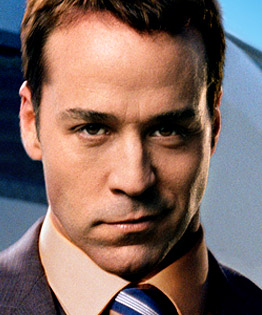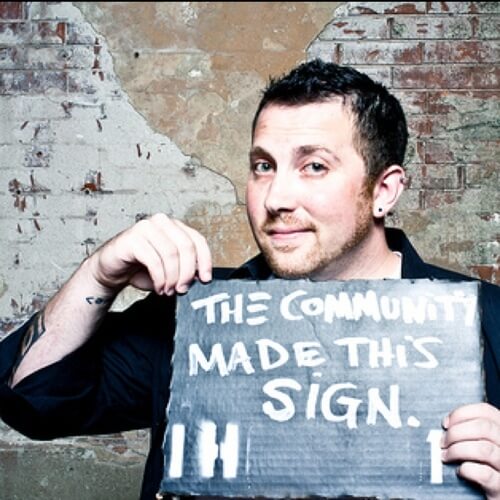Last week, I asked a bunch of my twitter followers, “What does creative mean to you?”
I wasn’t just trolling for comments, I actually was curious what the notion of creativity or a creative person was to different people. As expected, there was some really great variance in the responses. The real answer (if there is one) that I was looking to glean from the responses was that variance itself. I was interested in the different definitions because of another concept that has a bunch of different definitions, as well as connotations: Agency.
I was introduced to some of these concepts, like many other things that I hold dearly, by my friends at CitizenAgency. I remember when I first read the story of how they came to decide on the name for their consultancy, which is almost entirely based around helping companies create opportunities to extend agency into their userbases. Into their citizenship. The notion of Agency in this case was philosophical, the ability to help your users make good choices and ultimately, feel empowered to kick ass.
I’ve always felt that the concept that drives CitizenAgency is incredibly special, and the results of the projects that Chris and Tara have been involved in speak to that. Recently, and leading up to last weeks question, I’ve been mulling over the combination of the two polymorphic notions of “creative” and “agency”, and the fact that many of my industry’s businesses consider themselves creative agencies. And while they may or may not be fulfilling one (or many) of the different concepts of creative that people contributed to my last post, the vast majority of them miss out on the agency part in a pretty big way.
Part One – Creative Agency for the Client:
The most typical project ownership that’s experienced goes something like this:
- Client approaches firm/independent with project concept
- Firm/independent fulfills request, with the end user of the project in mind
In some of the best cases, there’s a discovery phase in between to help the creators understand the client’s intent. What’s missed, more often, is client education. Client involvement. And most importantly, reminding the client why they hired the firm or independent in the first place: because we’re the experts.
My intention with that statement is not to be condescending, but the reality of the relationship is that we, as the creators, are responsible for leading the client just as much as we are leading the project and the result that the end user experiences.
My problem in this part one discussion is that so many “agencies” do at least one of two things wrong. They ignore client education, or even worse, they roll over to client whims for the sake of avoiding confrontation. Without naming names or pointing fingers, this was the number one complaint I had with both of my full time jobs with interactive firms. They lead and executed amazing production work. And maybe it was simply because of where I sat in the ranks, but I never felt like the client had involvement in the project where it counted.
 In another one of my (ramblier) posts, I talked about the notion of doer-enablers, and creating an experience where a non-creative person can feel the creative process. In as many projects as possible, I’ve tried to put just as much focus on my experience with the client as I did on the experience we were creating together for their end user. And most importantly, I did a good job of engaging with clients who would be receptive to the education. I always let them feel that it was appropriate to push back on my suggestions, but at the same time, if I could take that push back and turn it into an opportunity to teach them something new and stand my ground, I would. Maybe I’m lucky to have had some really rad clients and partners. But I really think it was more about setting that precedent early and committing to carrying it forward.
In another one of my (ramblier) posts, I talked about the notion of doer-enablers, and creating an experience where a non-creative person can feel the creative process. In as many projects as possible, I’ve tried to put just as much focus on my experience with the client as I did on the experience we were creating together for their end user. And most importantly, I did a good job of engaging with clients who would be receptive to the education. I always let them feel that it was appropriate to push back on my suggestions, but at the same time, if I could take that push back and turn it into an opportunity to teach them something new and stand my ground, I would. Maybe I’m lucky to have had some really rad clients and partners. But I really think it was more about setting that precedent early and committing to carrying it forward.
Part Two – Creative Agency for the Talent:
The other thing I started to think about when I was analyzing “creative” and “agency” next to one another was the fact that most creatives are so busy “thinking outside of the box” (that one’s for you, Mike Propst) that they’re not particularly good at looking out for themselves. The horror stories I read on FreelanceSwitch about people getting taken advantage of blow me away. I understand that some folks simply lack the business savvy, but that leaves a big open hole for people really put focus on perfecting craft, which I have an immense amount of respect for. So what can we do for those people?
 You’re probably surprised I got this far in a post without mentioning coworking, and here’s the part where I live up to your expectations. I look at the interactions at IndyHall and other coworking communities that I observe from a distance and think that we’re in a fantastic position to help with this other type of agency, the one that borders on the far ends of the philosophical version I spoke about before. The type I’m thinking about is more along the lines of talent agency, where someone with the business savvy that a creative might lack is able to represent, mentor, and advise the creative in decision making. The difference in this type of agency (which, in my mind, plays out a bit like the talent agencies of Hollywood, but without the likes of Ari Gold and his extreme antics) is that it puts heavy focus on helping and representing talent, and the client interaction mentioned in part #1 of this post is the responsibility of the talent themselves. Think of it like an advisory board for hire.
You’re probably surprised I got this far in a post without mentioning coworking, and here’s the part where I live up to your expectations. I look at the interactions at IndyHall and other coworking communities that I observe from a distance and think that we’re in a fantastic position to help with this other type of agency, the one that borders on the far ends of the philosophical version I spoke about before. The type I’m thinking about is more along the lines of talent agency, where someone with the business savvy that a creative might lack is able to represent, mentor, and advise the creative in decision making. The difference in this type of agency (which, in my mind, plays out a bit like the talent agencies of Hollywood, but without the likes of Ari Gold and his extreme antics) is that it puts heavy focus on helping and representing talent, and the client interaction mentioned in part #1 of this post is the responsibility of the talent themselves. Think of it like an advisory board for hire.
One of the most exciting parts of my contributions to discovering the model we’ll be using at ChoiceShirts on our t-shirt designer community is this same concept: designers that not only work together, but support one another with their independent strengths. The model goes even deeper in the fact that ChoiceShirts itself will be extending its business, marketing, production, fulfillment, and distribution facilities to the artists it represents. This is creative agency, as I see it..
So how does coworking fit into this? Well, the problems in traditional talent agency models are, in my best estimation, rooted in greediness. Something amazing and empowering to me about the coworking community at large, and the culture it breeds, is how un-greedy it is. The contributory sentiments of all of our members at IndyHall, and nearly every interaction I’ve had on the coworking list or with members of another coworking space, lend themselves greatly to the concept of advising other creatives.
Generosity does not equate to poverty. William Hurley (Whurley, to friends across the universe) wrote some time back about how being an open source software developer does not, and should not, condemn ones self to a life of poverty. If we can apply those ideals (of give and take, and community moderation) to a Creative Agency for talent representation, we might be onto something special. And that’s the kind of “special” stuff I expect from my coworking cohorts.
Who’s game for watching one another’s back? Oh wait. We already are.
 I am always thinking about the intersection of people, relationships, trust and business. I founded
I am always thinking about the intersection of people, relationships, trust and business. I founded